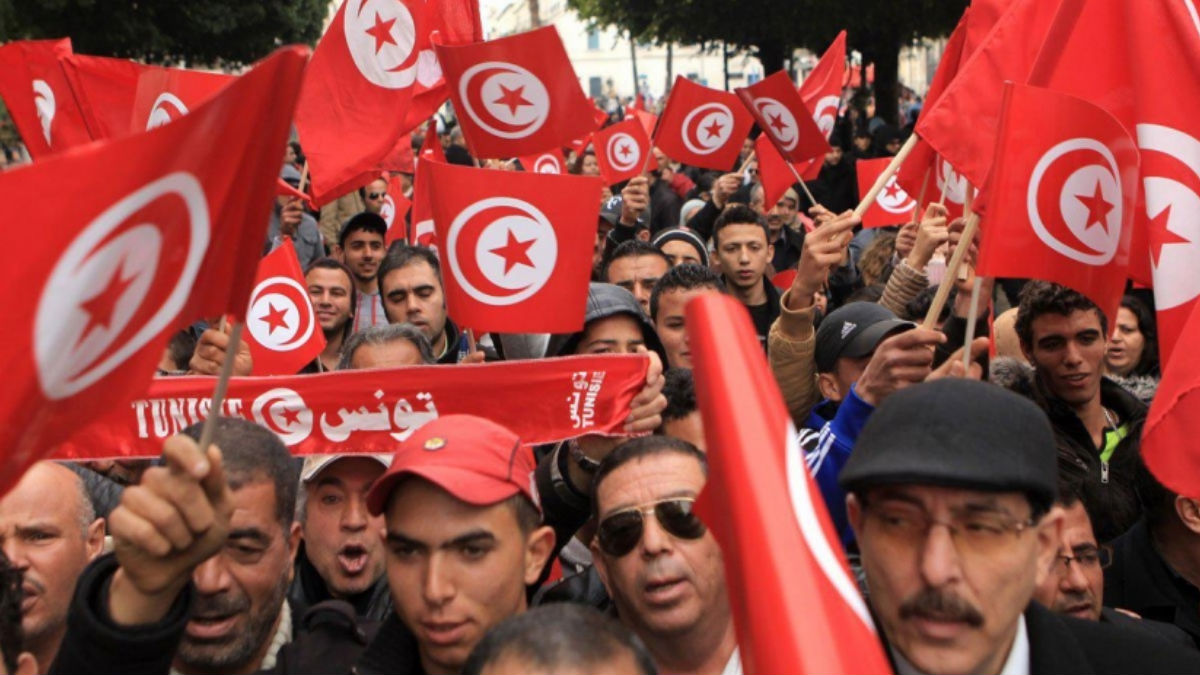Exerting more pressure on the Renaissance Movement in Tunisia and trying to isolate Rashid al-Ghannouchi, the President of the Parliament, seems to be no more than an attempt to limit the powers of the parliament’s president, the political analyst Mokhtar al-Dabbabi says, as al-Ghannouchi deviated from the powers set out in the Tunisian constitution on managing discussions about the government’s performance or drafts presented for discussion.
The opposition accuses the head of the Islamic Renaissance Movement of controlling the president’s and prime minister’s executive powers, in addition to conducting external activities without the knowledge of the Tunisian government, including striking secret agreements with Turkey and Qatar.
Public Interest and Reforming Situation
The political campaign taking place against the current in Tunisia is not carried out by the Free Constitutional Party, Dabbabi explains, “It represents a political interest for many parties and parliamentary blocs, especially if it succeeds in reforming the situation and limiting the role of the parliament’s president according to his powers,” he adds.
“Ghannouchi made a mistake by jumping above the constitution, promoting himself as the first man in the country and the mentor of renaissance and revolution.”
In the past few weeks, the Free Constitutional Party demanded the accountability of Ghannouchi and discredited him.
The party members had conducted a sit-in in Parliament to fulfill these demands and accused Ghannouchi of corruption.
Talking about the benefits of the Constitutional Party’s moves, Dabbabi says that the President of the Republic, Qais Saeed, and his PM, Elias Al-Fakhakh, would gain the greatest benefit, especially that this might disengage Tunisia from Turkey and Qatar, an issue that President Saed had emphasized on, specifically with regard to the Libyan issue.
The Renaissance movement controls a number of government portfolios, in addition to the presidency of the parliament, whereas it controls only 54 parliamentary seats.
Returning to Allies: Muslim Brotherhood
Instead of addressing people through local media, Ghannouchi has chosen the Qatari news channel Al Jazeera and the Turkish Anadolu News Agency to address the Tunisian public on local issues. On this regard, al-Jamei Qasimi, a political analyst, says this might provoke further escalation against Ghannouchi, especially if that move is interpreted as indirect support through foreign media.
Calls are raised in Tunisia for abolishing the current semi-parliamentary system and replacing it with the presidential system, rejected by the Renaissance Movement and considered as a violation for its legitimacy.
According to Qassimi, resorting to the Qatari and Turkish media means that the Renaissance Movement has not yet divorced from the Muslim Brotherhood. “The Tunisian political community’s rejection of the Muslim Brotherhood is because the MB has more loyalty to the group than to the country,” Qassimi indicates.
Tunisian opposition, Labor Union in particular, accuses the Renaissance Movement of forcing the country to trade and economic agreements with Turkey, enabling it to take control over Tunisian decision-making.
Political Alliances and Consensus
Although the movement succeeded over the past years in creating political alliances with forces outside the Islamic circle, such as the Tunisian Heart Party and Nidaa Tounis, the Secretary-General of the Tunisian Popular Stream Party, Zuhair Hamdi, questions the movement’s ability to repeat that scenario now, where he says: “The goal of this tactic is winning more time for greater empowerment and waiting for regional and international changes in favor of Ghannouchi and the international organization of the Muslim Brotherhood.”
Following the fall of the former Tunisian President Bin Ali, the Renaissance Movement came to power with the help of government coalitions it formed together with other parties and political streams.
Hamdi indicates that the consensus, which Ghannouchi is calling for, is an old card, played by the movement whenever it has no more choices, referring to the huge crisis facing the movement.
“Tunisia needs a new national vision right now,” he says.
The Speaker of Parliament faces a major crisis inside the movement, as several members call on him to resign in light of the current political crisis, accusing him of manipulating the movement’s statutes to be able to run for a new term.
Imperfect Faith and Accumulated Crises
The political analyst, Farouk Youssef says that the Renaissance Movement would not support the national democratic system, completely replacing the previous Tunisian regime: “The Tunisians thought it is a problem that would pass in light of establishing a democratic system that provides an opportunity to transfer power, but the Renaissance is still in power for eight years now.”
The worst is that the movement is imposing its ideological agenda on the foreign interests, Youssef adds, indicating that the movement’s policies and convictions make it impossible to separate from the Muslim Brotherhood.
























